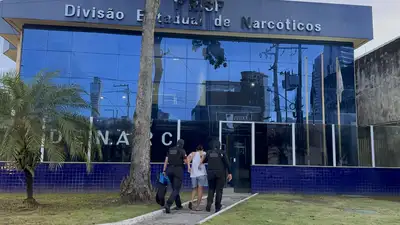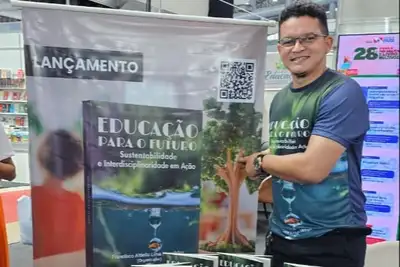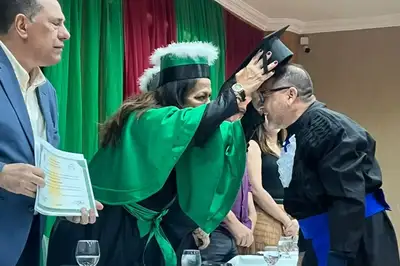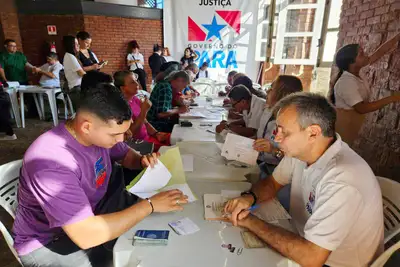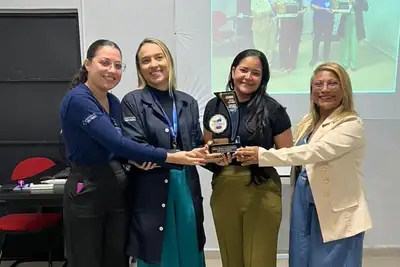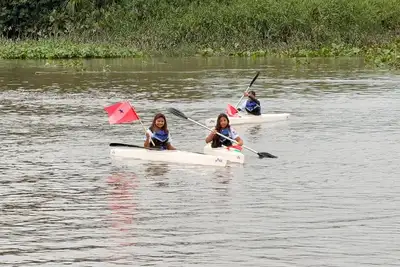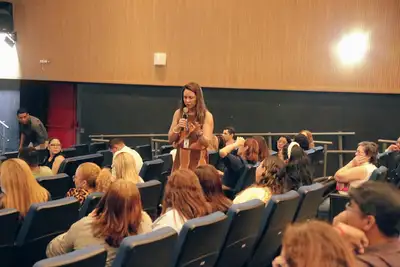Study points to Pará among the main tourism destinations for sport fishing
The Tourism Secretariat (Setur) establishes partnerships to qualify the workforce and enhance ecotourism itineraries that also involve gastronomy
Pará has established itself as one of the main destinations for sport fishing tourism in Brazil, according to the 12th edition of the Market Intelligence Bulletin on Tourism (BIMT), released in August 2025 by the Ministry of Tourism. The publication indicates that the segment generates, on average, R$ 1 billion per year in the country and creates around 200,000 direct and indirect jobs. Sport fishing alone accounts for approximately R$ 3 billion annually, according to the National Association of Ecology and Sport Fishing (Anepe). The survey highlighted that states in the North region, such as Pará, gather some of the greatest potentials in the sector, both for the volume of species and the diversity of environments.
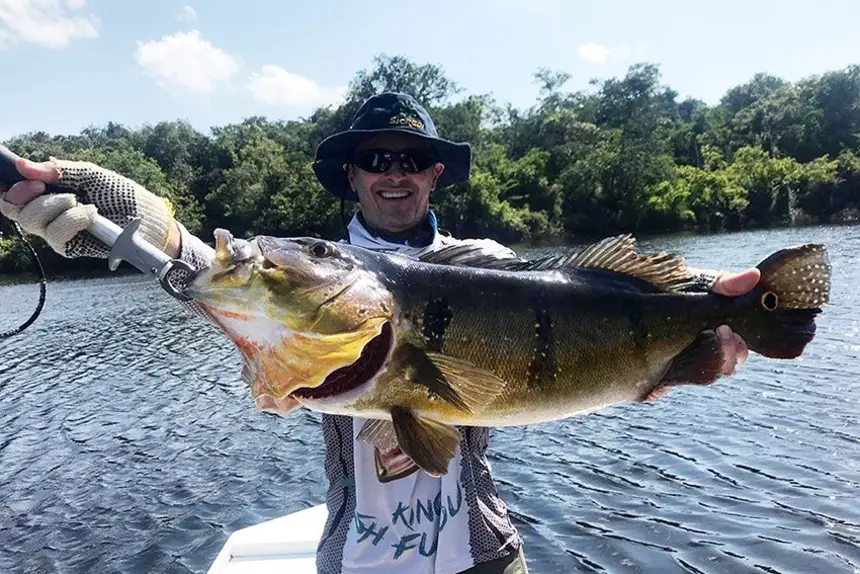
The study reinforced that Pará, with its flowing rivers, tributaries, and large lakes, is home to highly valued species by practitioners, such as tucunaré, pirarucu, tambaqui, piraíba, trairão, pirara, robalo (camurim), and tarpon (pirapema), among others. The document also informs that places like Lake Tucuruí, the Xingu, Tapajós, Trombetas, Araguaia, and Iriri Rivers are among the main hubs for sport fishing in the country.
Opportunities for experiences with preserved nature
In these regions, tourists find not only the thrill of the catch but also immersion in natural landscapes and direct contact with riverside communities, which play an essential role in welcoming and preserving the activity.
“Based on the survey, Pará emerges as a strategic destination for sport fishing tourism, aligning authentic experiences, economic potential, and socio-environmental responsibility. The challenge now is to expand infrastructure, ensure the balance between activity and preservation to consolidate Pará's image as a global reference in sustainable tourism,” explains the Secretary of Tourism of Pará, Eduardo Costa.
According to the BIMT, about eight million Brazilians practice fishing in some form. Pará stands out as a competitive destination in both the national and international markets.
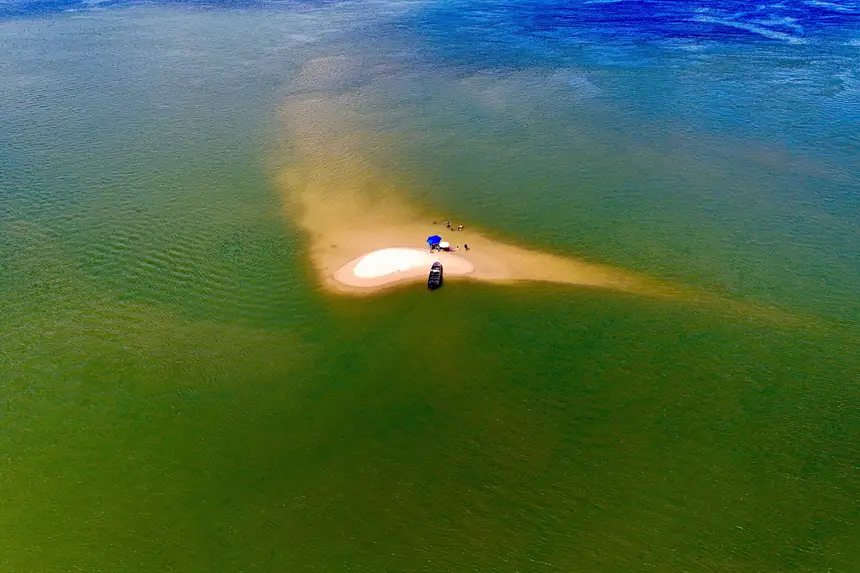
Fishing tourism attracts visitors from abroad
Municipalities such as Tucuruí, Oriximiná, Faro, Altamira, Vitória do Xingu, São Geraldo do Araguaia, and Jacareacanga offer lodging infrastructure for fishing tourism, specialized guides, and services that combine local tradition with the modernity of the tourism activity. The research also indicated that foreign demand has been growing, especially from tourists from the United States and Europe, interested in the Amazonian experience of catch and release in preserved waters.
The report showed that fishing tourism in Pará is not limited to leisure. The activity boosts entire economic chains, benefiting transportation, gastronomy, commerce, and regional handicrafts. The appreciation of riverside culture associated with the sustainable practice of "catch and release" has contributed to strengthening an economy aligned with environmental conservation. The BIMT emphasized that in locations where sport fishing has been structured, there has been greater engagement from local communities and better preservation of water resources.
Another point highlighted by the study was the importance of public policies that support the regulation of the activity. The document cited actions such as respecting the closed season, environmental monitoring, and social inclusion initiatives, such as promoting women's tournaments and encouraging the participation of traditional communities.
The Government of Pará invests in ecological tourism
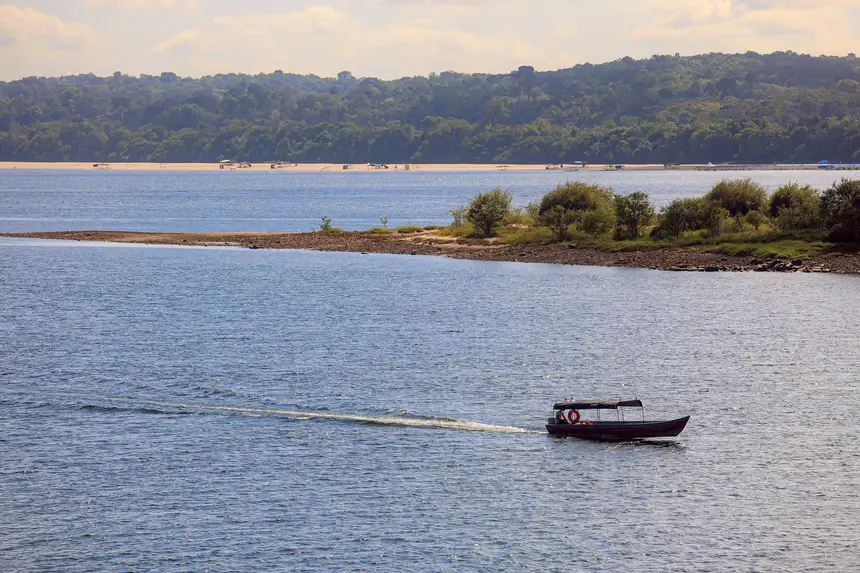
In Pará, the Tourism Secretariat (Setur) has partnered with private operators and local associations, qualifying the workforce and structuring itineraries that combine sport fishing, ecotourism, birdwatching, and gastronomy.
In this scenario, sport fishing has been presented as a showcase of Amazonian biodiversity and as an example of an activity capable of uniting economic development and conservation. The BIMT highlighted that this practice has the potential to consolidate as one of the most attractive experiences for the international audience that will participate in the event.
Secretary Eduardo Costa emphasized the relevance of the activity for the State: “Fishing tourism represents much more than leisure; it is an opportunity to show the world the richness of our biodiversity and the strength of our communities. In Pará, we have managed to transform fishing into a unique experience, where the visitor connects with nature, values riverside culture, and contributes to the sustainable development of our State,” he stated.


